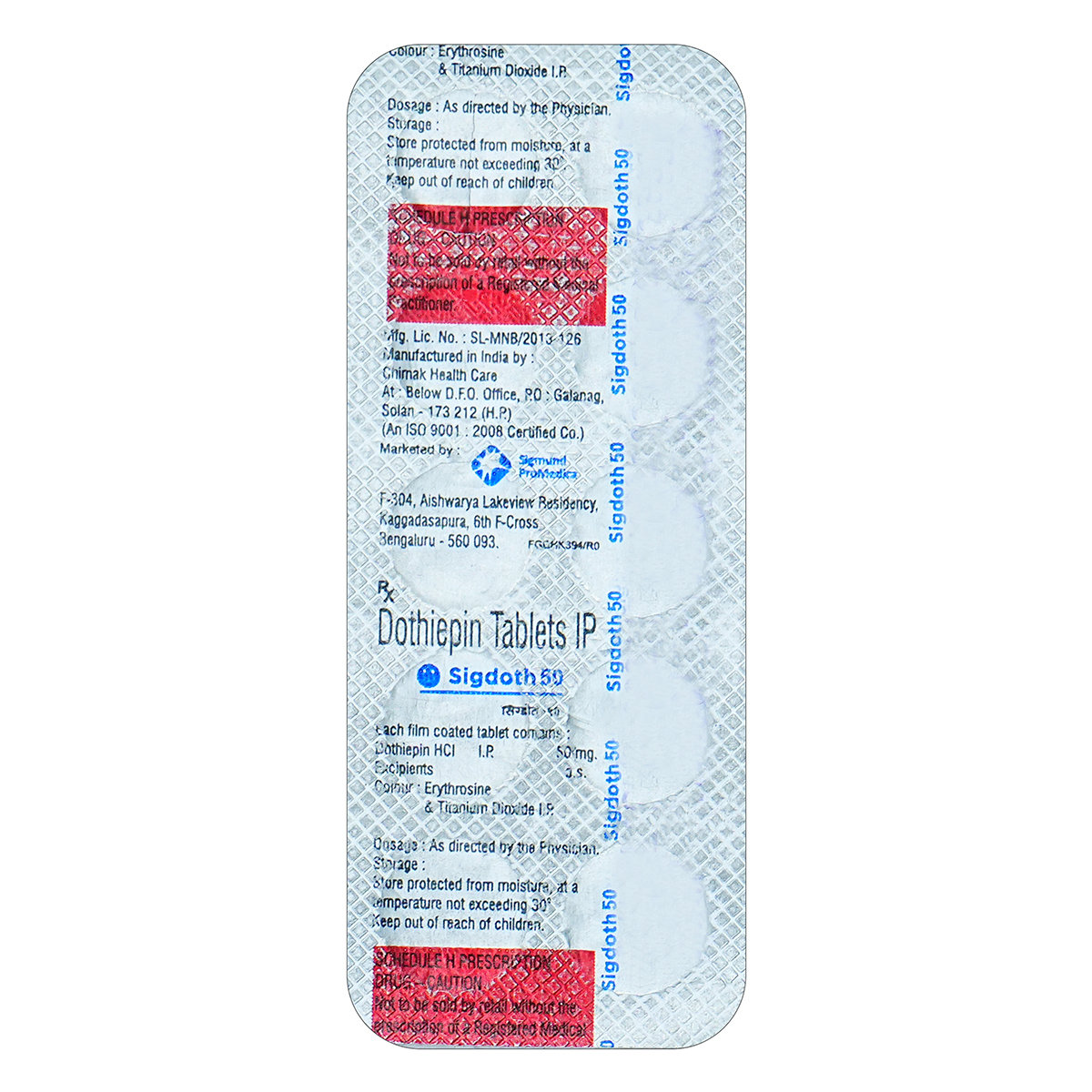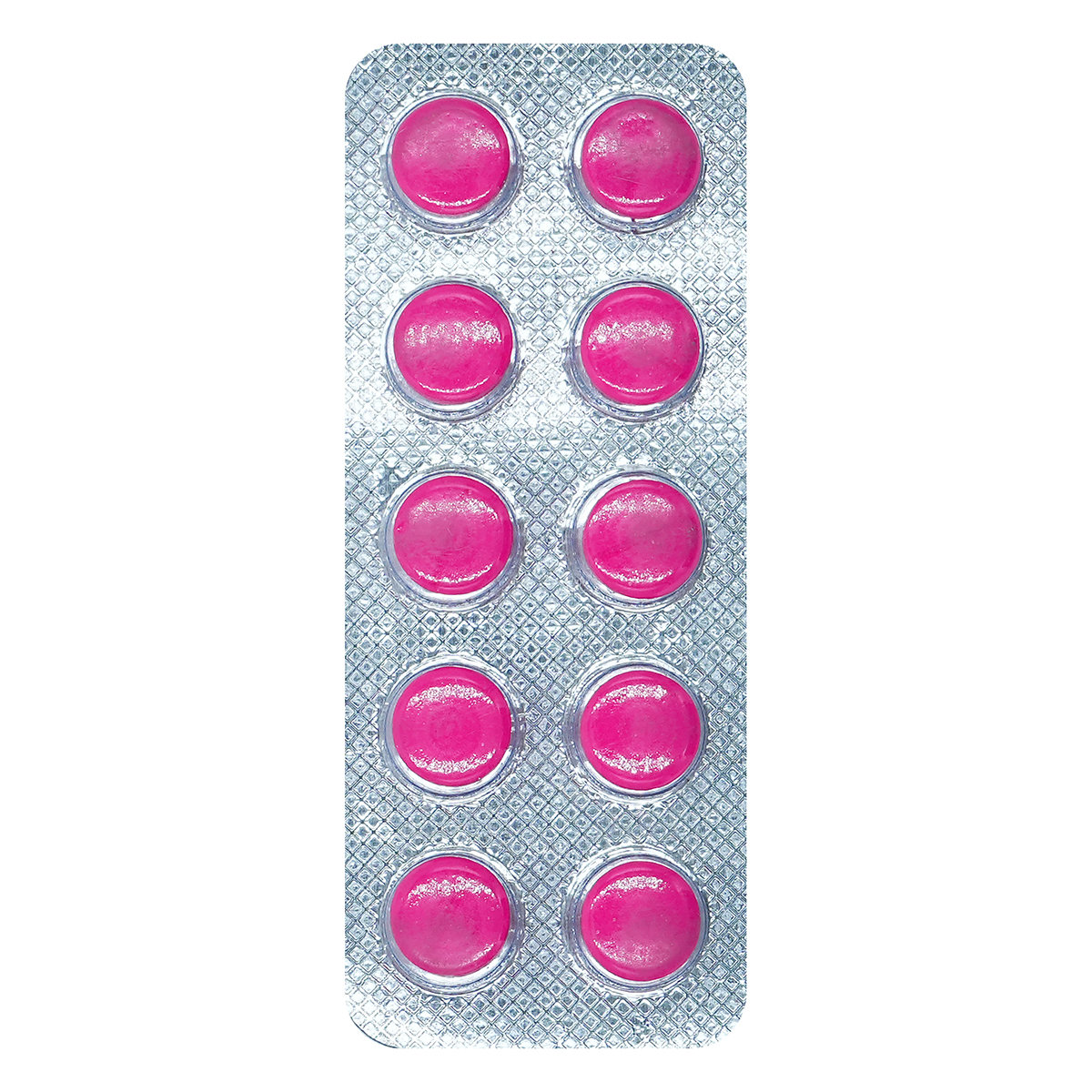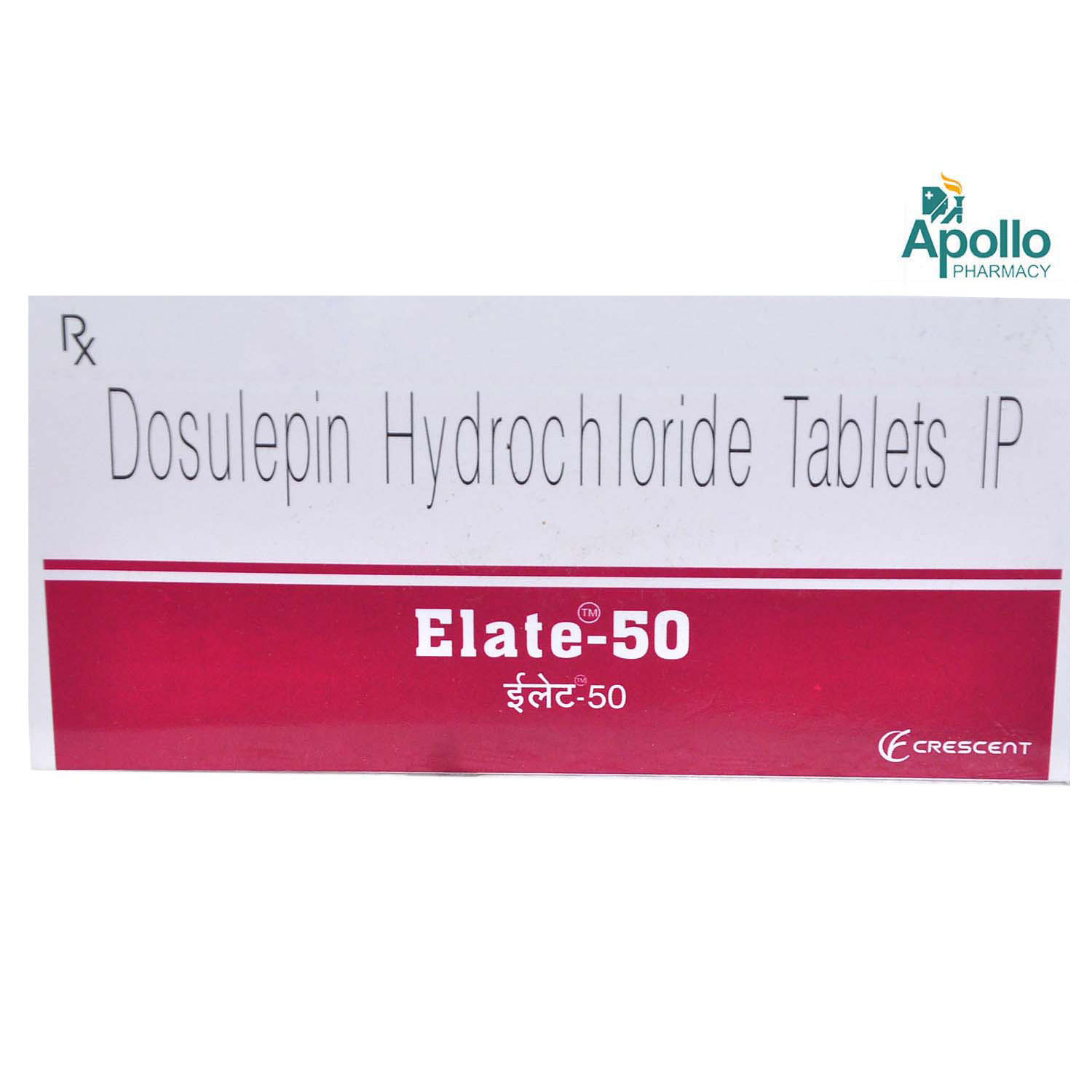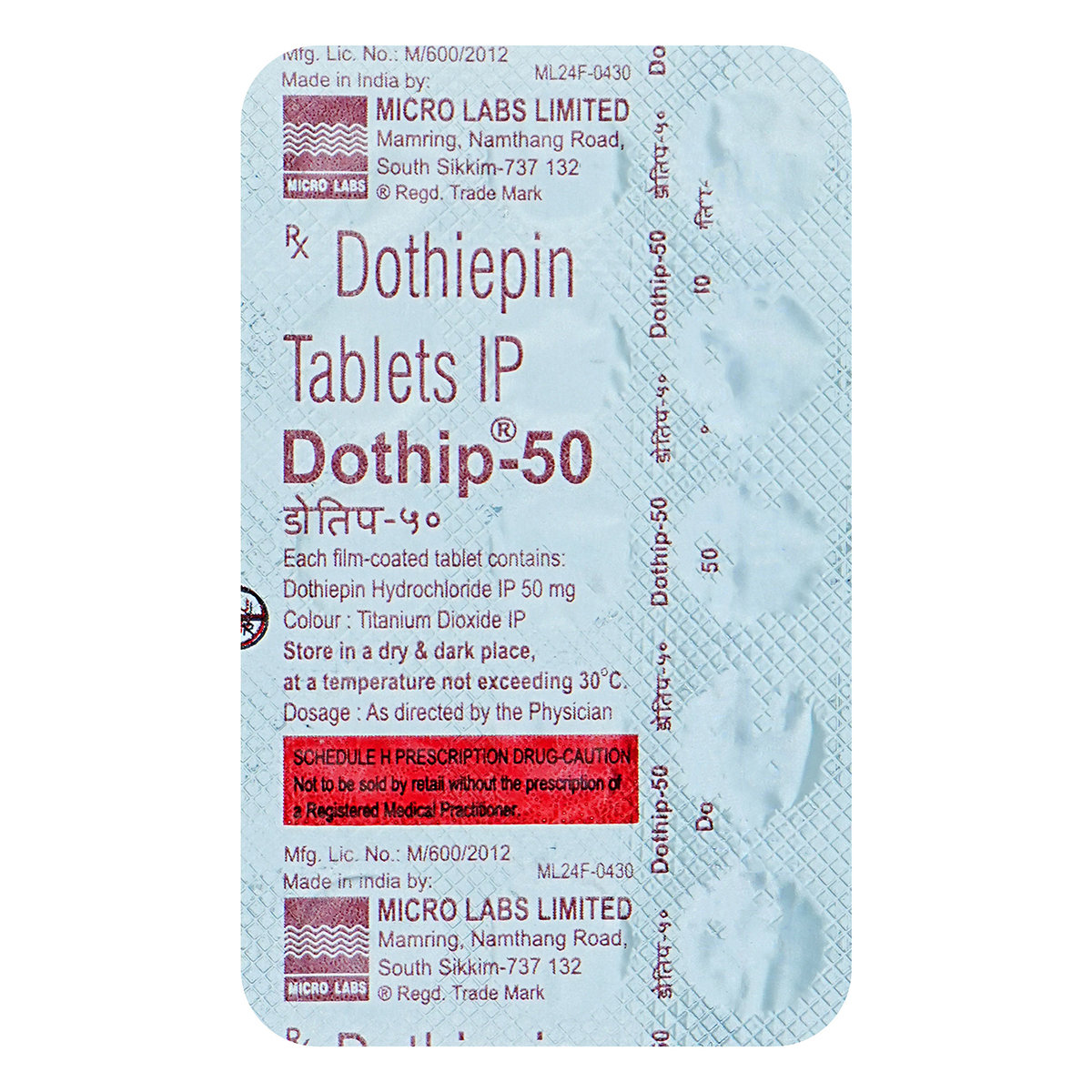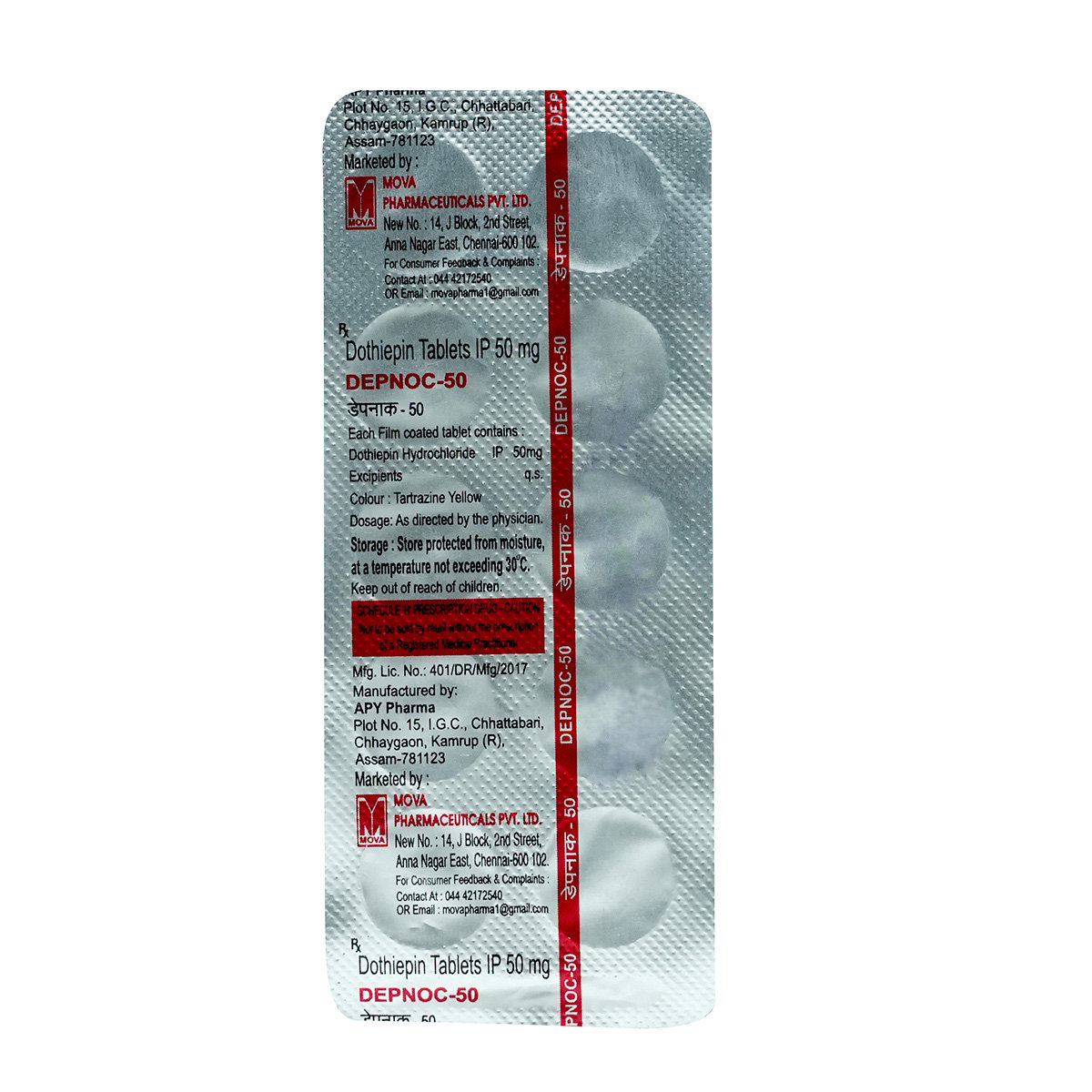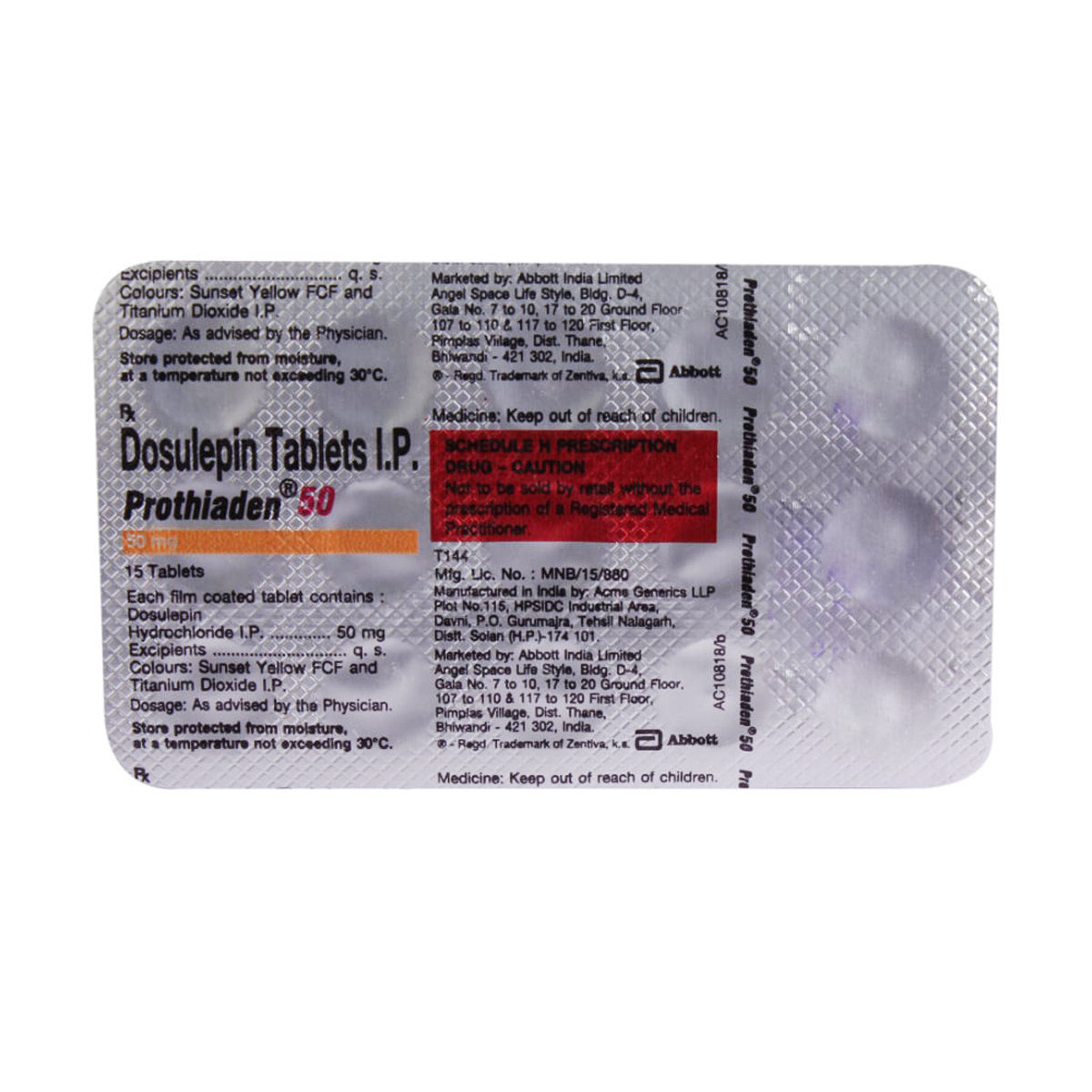Sigdoth 50 mg Tablet 10's
MRP ₹79.5
(Inclusive of all Taxes)
₹11.9 Cashback (15%)
Provide Delivery Location
Online payment accepted
 Prescription drug
Prescription drugWhats That
Composition :
Manufacturer/Marketer :
Consume Type :
Expires on or after :
Return Policy :
About Sigdoth 50 mg Tablet
Sigdoth 50 mg Tablet belongs to the class of tricyclic antidepressants. It is primarily used to treat depression that is unresponsive to other antidepressants or any other alternative treatment. It is also used to treat disorders related to anxiety. Depression is a mood disorder that affects day to day life of a person. A person may have symptoms such as feeling sad or feeling of loss and might have mood swings. Anxiety is defined as an emotion that is characterized by feelings of tension, worried thoughts, and symptoms like increased blood pressure. Anxiety disorder also includes panic disorder which is characterized by sudden feelings of terror.
Sigdoth 50 mg Tablet works by increasing the levels of chemical messengers which are responsible for stabilizing and elevating the mood levels in the brain. It also stops your brain from releasing the chemicals which cause anxiety. It provides relief from symptoms such as feelings of restlessness, irritability, tiredness, difficulty concentrating, feeling, and sleep disturbances. It helps to carry out daily activities easily.
Sigdoth 50 mg Tablet should be taken in dose and duration as advised by the doctor and taking it before bedtime should be preferred as it can make you feel drowsy. It can be taken with or without food, but it should be taken at a fixed time each day. In some cases, you may experience increased heart rate, blurred vision, dizziness, dryness in the mouth and constipation. Most of these side effects of Sigdoth 50 mg Tablet do not require medical attention and gradually resolve over time. However, if the side effects are persistent, reach out to your doctor.
Try not to stop taking this medicine on your own without consulting your doctor as it may lead to withdrawal symptoms. Do not take this medicine if you have any lung disease, muscle weakness (myasthenia gravis), sleeping disorder or difficulty in sleeping (sleep apnoea), severe liver disease or problem with alcohol or other prescription recreational drugs. Inform your doctor if you are planning to get pregnant, are pregnant, or breastfeeding. Also, tell your doctor if you are allergic to this medicine.
Uses of Sigdoth 50 mg Tablet
Directions for Use
Key Benefits
Sigdoth 50 mg Tablet works by increasing the levels of chemical messengers which are responsible for stabilizing and elevating the mood levels in the brain. It also stops your brain from releasing the chemicals which cause anxiety. Sigdoth 50 mg Tablet provides relief from symptoms such as feelings of restlessness, irritability, tiredness, difficulty concentrating, feeling, and sleep disturbances. It helps to carry out daily activities easily.
Storage
- Get enough sleep. Maintain a regular sleep cycle.
- Eat a healthy diet and exercise regularly.
- Manage stress with yoga or meditation.
- Limit alcohol and caffeine.
- Avoid driving or operating machinery unless you are alert.
- Change positions or take a break from activity to relieve symptoms.
- Avoid postures that put a lot of pressure on just one area of the body.
- If you have vitamin deficiency, take supplements or change your diet.
- Exercise regularly like cycling, walking or swimming.
- Avoid sitting with your legs crossed.
- Clench and unclench your fists and wiggle your toes.
- Massage the affected area.
- Maintain consistent habits, sleep patterns and food times to help maintain stability and reduce confusion.
- Mindfulness techniques such as deep breathing or meditation help you stay focused and in the now.
- Participate in cognitive therapy to enhance your ability to remember, focus and solve problems.
- As directed by your physician, take your medications to help control underlying disorders like depression, anxiety or cognitive impairment.
- Always wear loose-fitting clothes which are suitable for your activity.
- Include the diet containing fruits like watermelon, grapes, bananas and green leafy vegetables.
- Drink plenty of water stay hydrated.
- Avoid moving more and staying in hot sun.
- If you experience low blood pressure symptoms like dizziness, lightheadedness, or fainting while taking medication, seek immediate medical attention.
- Make lifestyle modifications and adjust your medication regimen under medical guidance to manage low blood pressure.
- As your doctor advises, regularly check your blood pressure at home. Record your readings to detect any changes and share them with your doctor.
- Fluid intake plays a vital role in managing blood pressure by maintaining blood volume, regulating blood pressure, and supporting blood vessel function. Drinking enough fluids helps prevent dehydration, maintain electrolyte balance, and regulate fluid balance.
- Take regular breaks to sit or lie down if you need to stand for long periods.
- When lying down, elevate your head with extra pillows to help improve blood flow.
- Avoid heavy exercise or strenuous activities that can worsen low blood pressure.
- Wear compression socks as your doctor advises to enhance blood flow, reduce oedema, and control blood pressure.
- If symptoms persist or worsen, or if you have concerns about your condition, seek medical attention for personalized guidance and care.
- Inform your doctor about the nausea and discuss possible alternatives to the medication or adjustments to the dosage.
- Divide your daily food intake into smaller, more frequent meals to reduce nausea.
- Opt for bland, easily digestible foods like crackers, toast, plain rice, bananas, and applesauce.
- Avoid certain foods that can trigger nausea, such as fatty, greasy, spicy, and smelly foods.
- Drink plenty of fluids, such as water, clear broth, or electrolyte-rich beverages like coconut water or sports drinks.
- Use ginger (tea, ale, or candies) to help relieve nausea.
- Get adequate rest and also avoid strenuous activities that can worsen nausea.
- Talk to your doctor about taking anti-nausea medication if your nausea is severe.
- Record when your nausea occurs, what triggers it, and what provides relief to help you identify patterns and manage your symptoms more effectively.
- Notify your doctor immediately if you experience tremors or involuntary shaking after taking medication or adjusting your medication regimen.
- Your doctor may adjust your medication regimen or recommend alternative techniques like relaxation, meditation, or journaling to alleviate tremor symptoms.
- Your doctor may direct you to practice stress-reducing techniques, such as deep breathing exercises, yoga, or journaling.
- Regular physical activity, such as walking or jogging, can help reduce anxiety and alleviate tremor symptoms.
- Your doctor may recommend lifestyle changes, such as avoiding caffeine, getting enough sleep, and staying hydrated, to help manage tremors.
- Maintain regular follow-up appointments with your doctor to monitor tremor symptoms and adjust treatment plans as needed.
Drug Warnings
Sigdoth 50 mg Tablet should be given with extreme caution in patients having epilepsy (Brain disorder in which brain activity becomes abnormal, causing seizures), impaired liver or kidney function, diabetes, decreased level of sodium in the blood, tendency to easily develop bleedings or bruises, patients receiving electroconvulsive treatment, having coronary heart disease, suffering or have suffered from heart problems or have recently had a heart attack, having a low resting heart-rate, having prolonged severe diarrhoea and vomiting (Being sick) or using diuretics (water tablets), experiencing a fast or irregular heartbeat, fainting, collapse, or dizziness on standing up, which may indicate abnormal functioning of the heart rate and having or previously had eye problems, such as certain kinds of glaucoma (increased pressure in the eye).
Drug-Drug Interactions
Drug-Drug Interactions
Login/Sign Up
Coadministration of paroxetine and Sigdoth 50 mg Tablet might raise serotonin hormone levels in the body, affecting the brain and nerve cells. Increased serotonin hormone can lead to severe side effects.
How to manage the interaction:
Although taking Sigdoth 50 mg Tablet and paroxetine together can possibly result in an interaction, they can be taken together if prescribed by a doctor. However, if you experience confusion, increased heart rate, fever, excessive sweating, blurred vision, muscle spasms, nausea, vomiting, and diarrhea contact your doctor immediately. Do not discontinue any medications without first consulting your doctor.
Coadministration of Amitriptyline and Sigdoth 50 mg Tablet may increase the risk of irregular heartbeat. The risk increases in patients with a history of heart illness or electrolyte imbalance.
How to manage the interaction:
Although combining Amitriptyline with Sigdoth 50 mg Tablet may result in an interaction, it can be used when a doctor recommends it. If you experience sudden dizziness or irregular heartbeats during therapy, contact your doctor immediately. Do not discontinue any medication without consulting a doctor.
Drug-Food Interactions
Drug-Food Interactions
Login/Sign Up
Diet & Lifestyle Advise
- Option for healthy food which in turn will help you to elevate your moods.
- Exercise daily for at least 30 minutes a day. It will help you to reduce stress and improve your mood. It will also improve your quality of sleep.
- Take deep breaths to calm your mind.
- Follow a consistent sleep schedule (at least 8 hours a day).
- Manage your stress levels by doing activities that make you happy such as watching your favourite show, reading a book, listening to music, and activities of your interest.
Side Effects of Sigdoth 50 mg Tablet
- Increased heart rate
- Blurred vision
- Dizziness
- Dryness in the mouth
- Weight gain
- Sudden lowering of blood pressure on standing
- Difficulty in urination
- Constipation
Habit Forming
Therapeutic Class
All Substitutes & Brand Comparisons
RX
Melanco-50 Tablet 10's
Linux Laboratories Pvt Ltd
₹67.5
(₹6.08 per unit)
15% CHEAPERRX
Elate-50 Tablet 10's
Crescent Formulations Pvt Ltd
₹70.5
(₹6.35 per unit)
11% CHEAPERRX
Dozep 50 Tablet 10's
Talent India Pvt Ltd
₹79.5
(₹7.16 per unit)
Drug-Diseases Interactions
Drug-Diseases Interactions
Login/Sign Up
FAQs
Drug-Drug Interactions Checker List
- PHENELZINE
- IPRONIAZID
- ISOCARBOXAZID
- NIALAMIDE
- IMIPRAMINE
- DESIPRAMINE
- TRANYLCYPROMINE
- MOCLOBEMIDE
- SELEGILINE
- LINEZOLID
- LITHIUM
- TRYPTOPHAN
- SUMATRIPTAN
- TRAMADOL
- CIMETIDINE
- LANSOPRAZOLE
- OMEPRAZOLE
- FLUCONAZOLE
- TICLOPIDINE
- WARFARIN
- DIPYRIDAMOLE
- PHENPROCOUMON
- MEFLOQUINE
- FLECAINIDE
- PROPAFENONE
Special Advise
Do not stop taking dosulepin without talking to your doctor. You may suffer side effects if you stop taking it suddenly. If you and your doctor agree that you should stop taking dosulepin, your doctor will probably recommend reducing your dose gradually over several weeks.
Disease/Condition Glossary
Depression: It is a mood disorder that affects day to day life of a person. A person may have symptoms such as feeling sad or feeling of loss and might have mood swings.
Anxiety: It is defined as an emotion that is characterized by feelings of tension, worried thoughts, and symptoms like increased blood pressure. Anxiety disorder also includes panic disorder which is characterized by sudden feelings of terror.

Have a query?
Alcohol
Safe if prescribed
It is not recommended to take alcohol while taking Sigdoth 50 mg Tablet to avoid unpleasant side-effects.
Pregnancy
Consult your doctor
It is advised not to take Sigdoth 50 mg Tablet during pregnancy as it may pose risk to the unborn baby. However, if you are already taking Sigdoth 50 mg Tablet , please inform your doctor that you are pregnant.
Breast Feeding
Consult your doctor
Sigdoth 50 mg Tablet passes in very small amounts in breast milk. It has not been linked with any side-effects. However, caution is advised while taking it. Please inform your doctor if you are breastfeeding.
Driving
Safe if prescribed
It is not recommended to drive after taking Sigdoth 50 mg Tablet as it can make you feel drowsy.
Liver
Consult your doctor
Caution is advised while taking Sigdoth 50 mg Tablet if you suffer or have suffered from liver diseases.
Kidney
Consult your doctor
Caution is advised while taking Sigdoth 50 mg Tablet if you suffer or have suffered from kidney diseases.
Children
Safe if prescribed
Sigdoth 50 mg Tablet is not recommended in children below 12 years of age.

